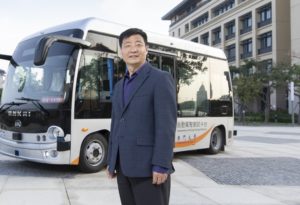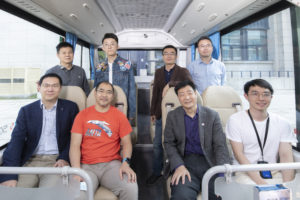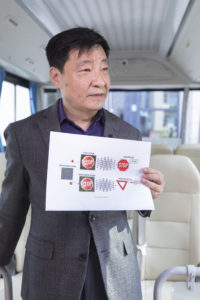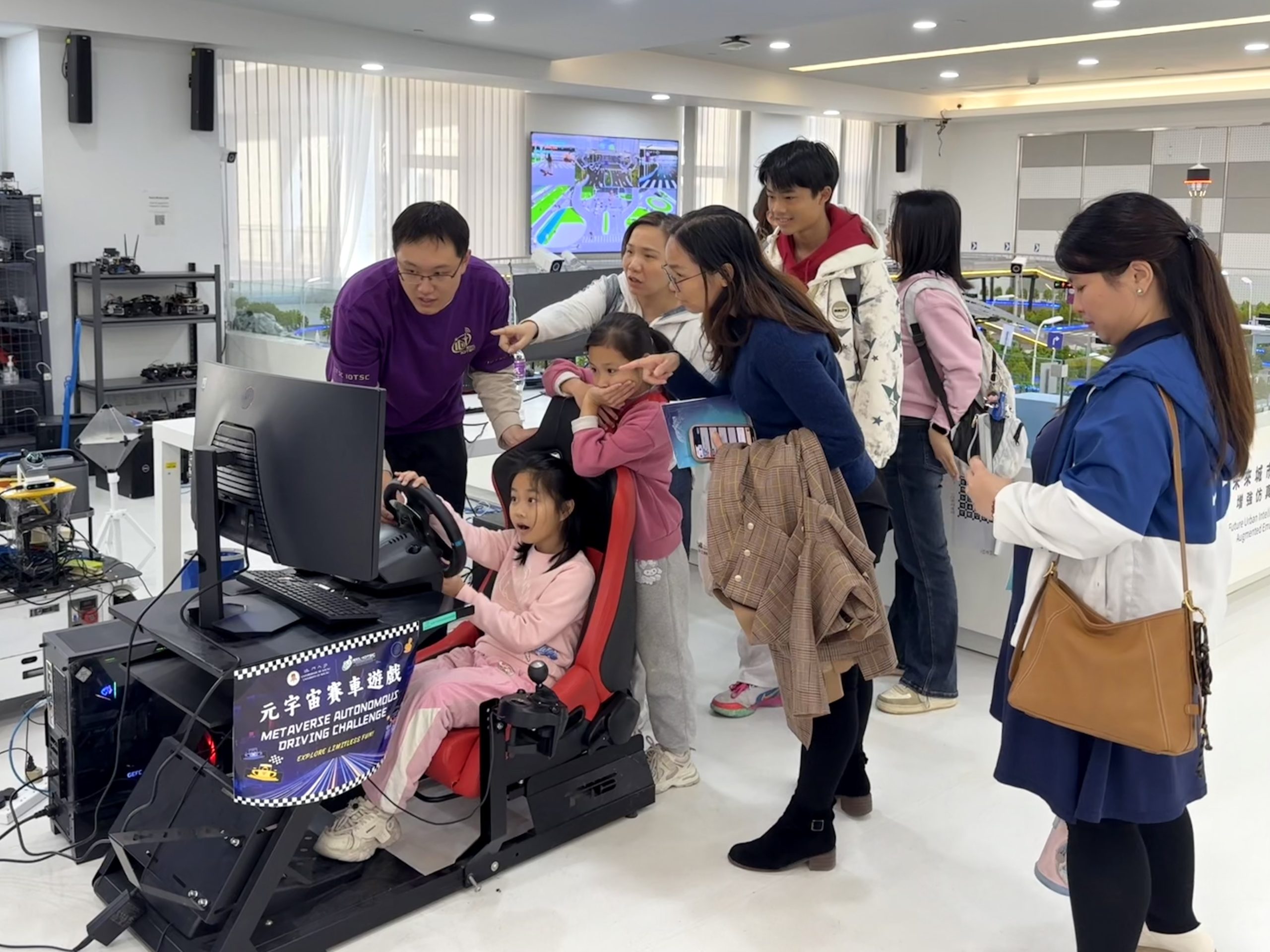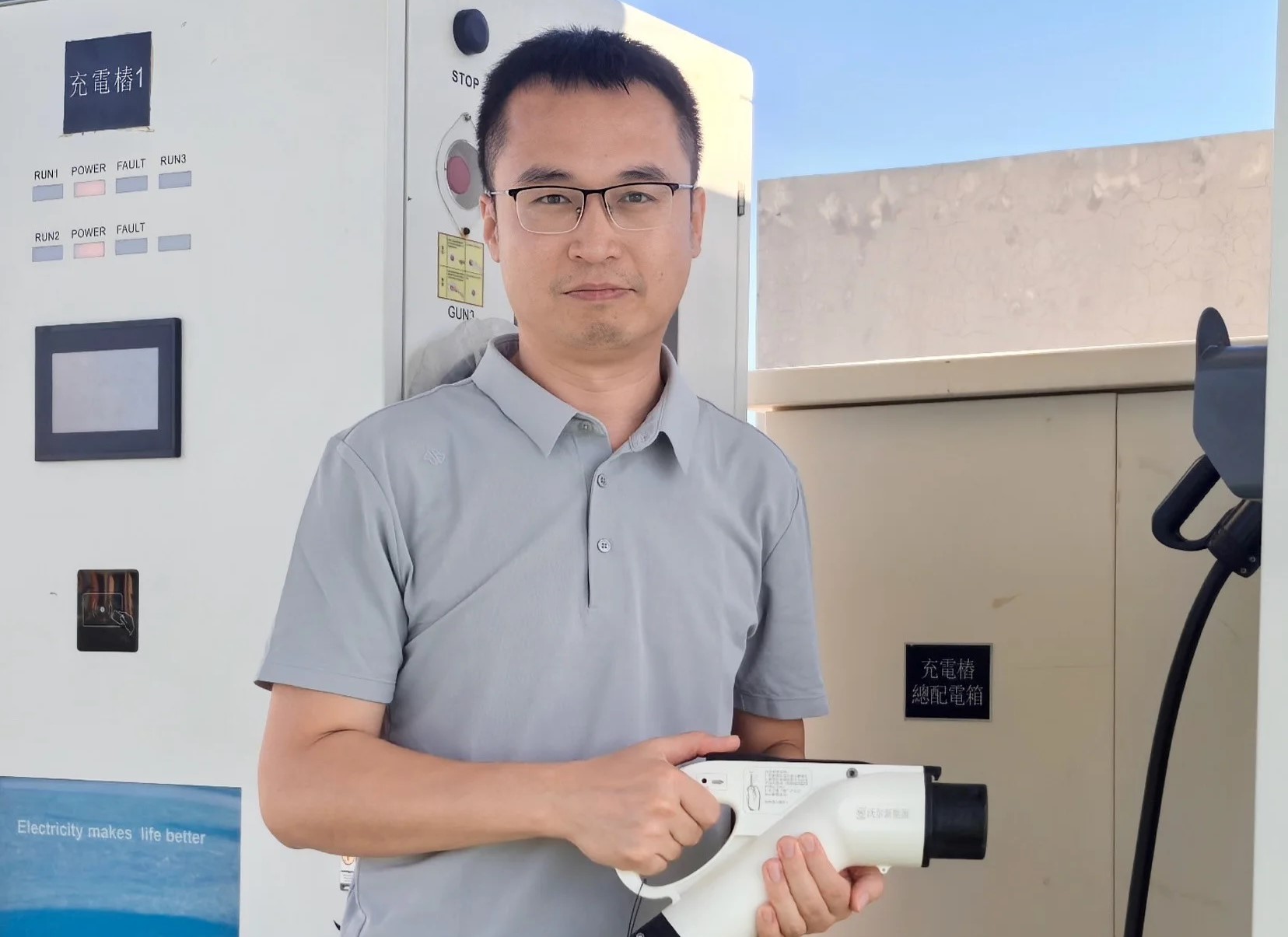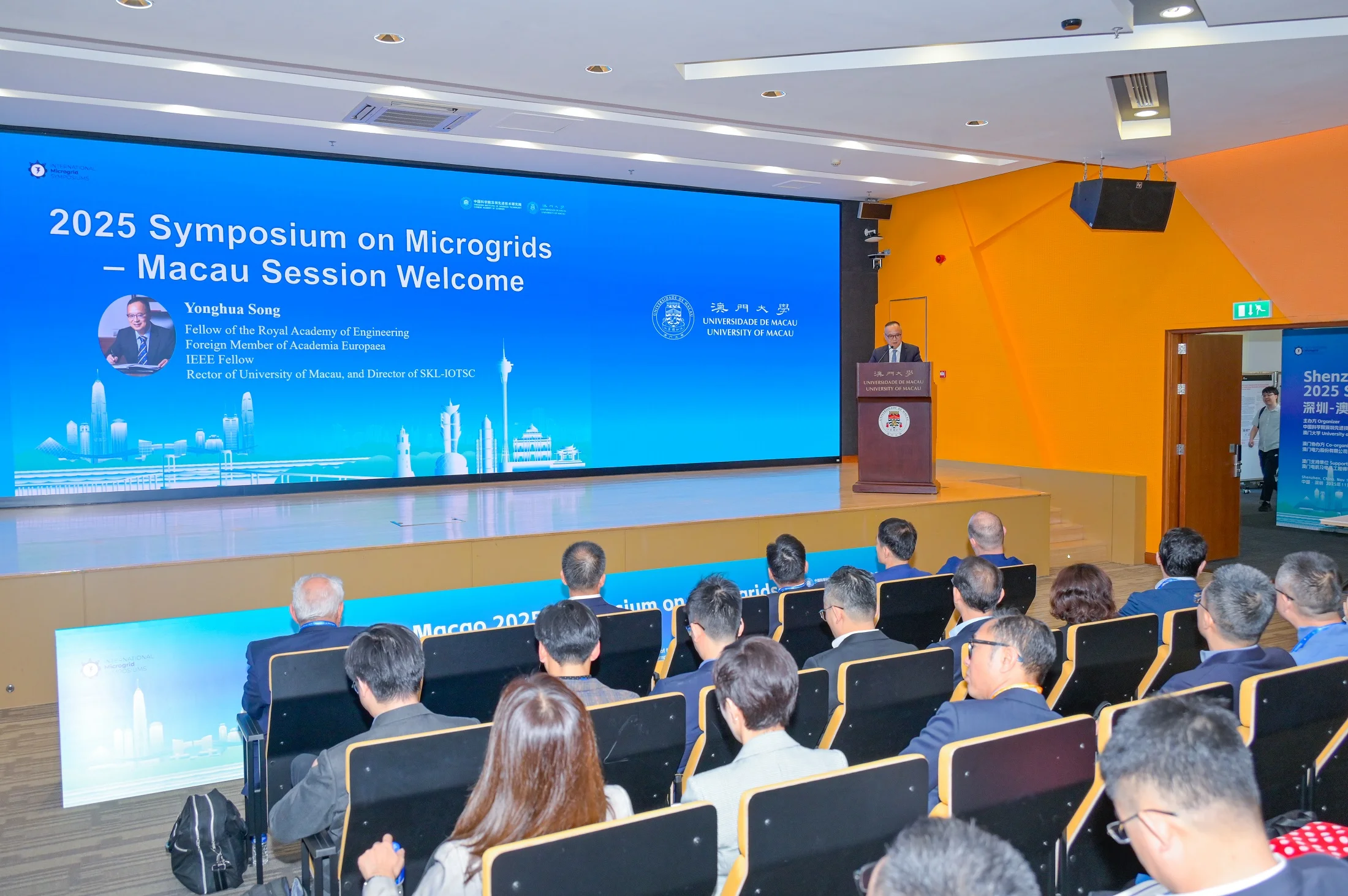Macao’s first Autonomous Driving Bus Testing Platform has launched in 2020, marking the start of a new chapter of intelligent transportation system in Macao. This research project is the key R&D project funded by the Science and Technology Development Fund (FDCT). It has been working on creating a swarm intelligence based first-class vehicle platform and an experimental base of vehicle-road coordination for autonomous driving in the Guangdong-Hong Kong-Macao Greater Bay Area. The project is led by Prof. Xu Cheng-Zhong, Dean of the Faculty of Science and Technology of the University of Macau (UM) and his team and it is a collaborative effort between UM and leading institutions in mainland China, including Shenzhen Institutes of Advanced Technology under the Chinese Academy of Sciences, Baidu and Shenzhen Haylion Technologies. Desired outcomes and progress have been achieved since the start of the project.
At the level of key technologies, the team has achieved breakthroughs in robust autonomous driving against adversarial attacks, scene adaptability via transfer learning, highly-efficient inference for perception and decision models. These research outcomes have been published in top-tier AI conferences, such as CVPR, ICML, ICLR, and NeurIPS. The team participated into an international algorithm competition recently, namely “CVPR Security AI Challenger”, competed with total 1,681 teams around the world and won the 2nd prize. Heretofore, 22 journal papers, 19 conference papers, and 15 patents have been generated from this project. At the level of research and testing platform, the team successfully constructed the “Future Urban Intelligent Transportation Augmented Emulation Platform” through the independently developed digital twin technologies. This platform covers a wide spectrum of common scenarios and unusual ones, enabling the testing of autonomous driving algorithms, mixed operations of autonomous and manned driving, cooperative control, competitions of autonomous driving algorithms, etc. Besides, since the launch of MoCAD Testing Platform in October 2020, the autonomous bus has been constantly improving in terms of stability and safety, capable of responding to emergencies, avoiding risks by making lane change, slowing down, etc. The autonomous bus has been tested in multiple paths on UM campus, some of which are made available to the public. In the future, more testing paths will be opened at a regular basis.
At the level of industrialization, the team was invited to compete for the autonomous shuttle bus project in HK airport (currently under review). It was also planned to schedule a direct autonomous bus route from Macau to Hengqin, playing a leading demonstration role for the scientific development in Guangdong-Hong Kong-Macao Greater Bay Area. At the level of talent development, the project has nurtured more than 20 postdocs and doctoral students. To meet the needs of relevant talents, the Macao first autonomous driving course which held recently. More than 70 students completed the course which could provide a foundation for the future development of the industry and accelerate the development of a new generation of autonomous driving.
